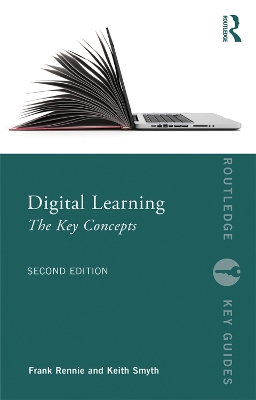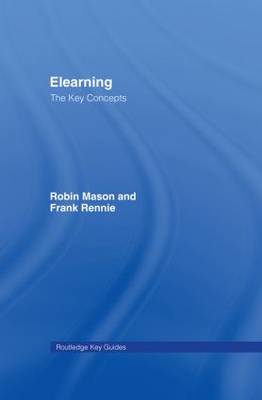Routledge Key Guides
2 total works
The new edition of Digital Learning: The Key Concepts is the perfect reference for anyone seeking to navigate the myriad of named concepts, approaches, issues and technologies associated with digital learning.
Key terms are explained succinctly, making this book ideal to dip into for a quick answer, or to read from cover-to-cover, in order to gain a mastery of how digital concepts fit within the world of education. Fully updated to include important developments in digital practice and technology in education over the last ten years, this book takes the reader from A to Z through a range of relevant topics including:
• Course design
• Digital scholarship
• Learning design
• Open education
• Personal learning environments
• Social media and social networking.
Ideal as an introductory guide, or as a reference book for ongoing referral, this quick-to-use and comprehensive guide is fully crossreferenced and complete with suggestions for further reading and exploration, making it an essential resource for anyone looking to extend their understanding of digital practices, techniques and pedagogic concepts.
E-Learning has long been touted as the brave new frontier of education, offering fresh challenges to teachers, students and, indeed, the whole of the education system. Addressing this, Elearning: The Key Concepts is the perfect reference for anyone seeking to navigate the myriad of names, concepts and applications associated with this new era of teaching, training and learning.
Taking the reader from A to Z through a range of topics including blogging, course design, plagiarism, search engines and Virtual Learning Environments (VLEs), this timely work features:
- full cross-referencing
- a substantial introduction exploring the development of the field and putting modern-day challenges in context
- extensive guides to further reading.
The only text of its kind to provide concise and user-friendly definitions of the crucial terms used in this growing field, this is a highly useful resource for online course co-ordinators, undergraduate students taking online courses, students on masters-level online learning courses, and trainers.

